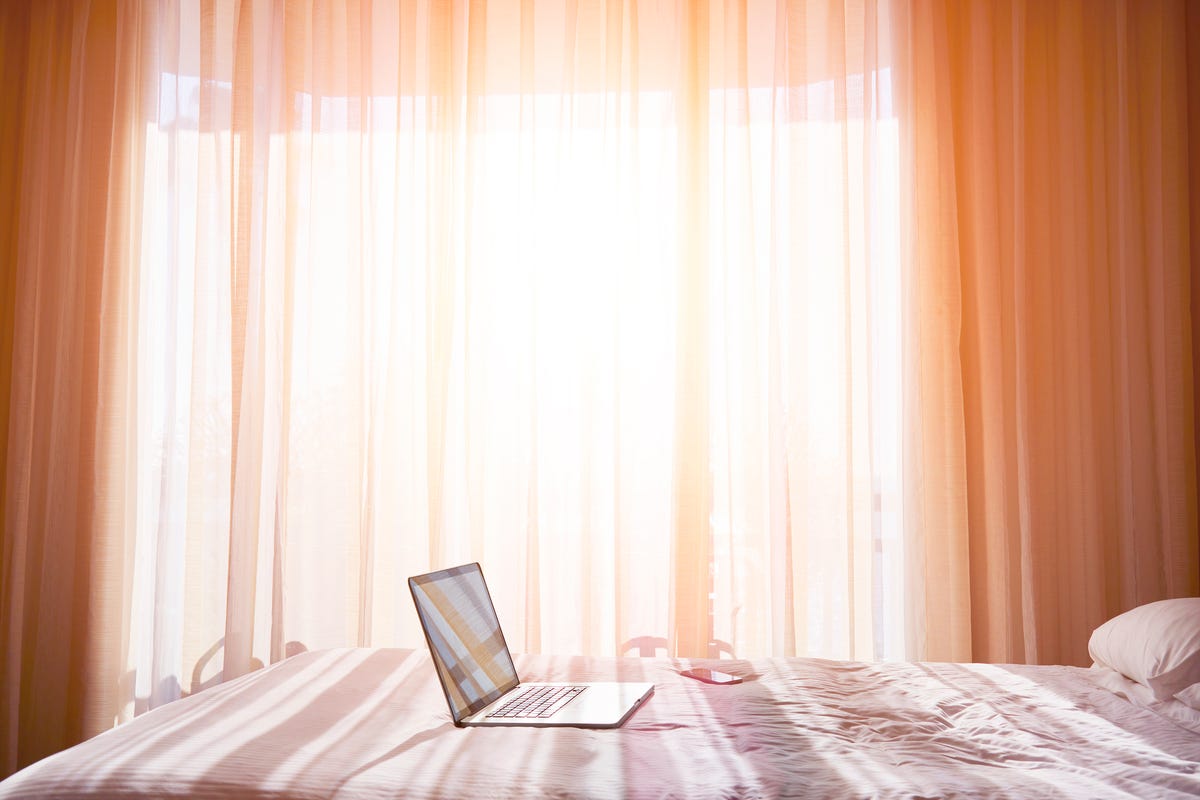The top of DST is drawing close to, which implies shorter days and longer nights. In response to a survey by the Sleep Physician, 25% of individuals stated the time change impacts their sleeping habits. For those who’ve had bother falling asleep or staying asleep throughout a time change, listed below are a number of methods to get your circadian rhythm — the physique’s inner alarm clock — again on monitor.
Learn extra: The 7 Greatest Meals for Higher Sleep
Methods to reset your physique’s alarm clock
To advertise wholesome sleep hygiene and stop the ramifications of shedding sleep after daylight saving time, think about following the following tips.
1. Do not modify your wake-up time straight after the time modifications. After a number of days to every week, your physique will turn into acclimated to the brand new time. As a substitute, think about taking a brief 20-minute nap within the afternoons to assist in giving you extra vitality. Lengthy naps, nevertheless, could go away you feeling drowsier.
2. Keep away from alcohol, caffeine and unhealthy meals earlier than mattress. These substances trigger sleep disruptions that hold you from getting the standard seven to 9 hours of sleep it is advisable keep bodily and psychological well being.
3. For those who’re an early riser, go exterior early within the morning to get some mild. Gentle helps you keep extra alert through the daytime, and can cut back your physique’s manufacturing of melatonin, which causes drowsiness. You too can think about a dawn alarm clock. It omits a pure mild in your bed room to softly wake you up within the morning just like the solar’s mild would. It is particularly useful now that the solar rises later.
How daylight saving time impacts your physique
Your circadian rhythm is your physique’s inner clock, which follows a 24-hour cycle. It performs an vital function in dictating your sleep-wake cycle, and it is closely influenced by cues from the sunshine and darkness. When daylight saving time kicks in, it may well delay your circadian rhythm, inflicting you to really feel sleepier within the morning whereas it is nonetheless darkish, and extra energetic within the night because the solar stays up later.
For those who’ve ever traveled to a area with a unique time zone than you are used to, you have doubtless skilled an identical disruption in your circadian rhythm with what we name jet lag. For example, in the event you journey from New York to California the place there is a three-hour time distinction, 9 p.m. looks like midnight to your physique, and also you’re a lot drowsier than typical.
At first look, a small change in your routine could not appear drastic. Nonetheless, research have proven that disruptions attributable to DST can have fairly the impression in your sleep hygiene and general well being in the event you aren’t cautious.

The results of daylight saving time
The common individual will sleep round 40 minutes much less on the Monday following the beginning of DST, in response to one examine. Other than feeling drowsy, specialists have additionally cited (in additional critical instances) a rise in office accidents, coronary heart assaults, temper swings and even automobile crashes after switching from normal time (November to March) to sunlight saving time. Poor sleep high quality and modifications in our sleep-wake cycle appear to be driving components of those occasions, and it is a main argument for specialists pushing for the abolishment of DST.
Extra Learn: Why Your Inside Clock Retains You Up at Evening

The proposed advantages of daylight saving
On the flip aspect of the coin, there has additionally been analysis pointing to the advantages of observing DST. Whereas car-crash fatalities appear to extend the day after switching from normal time to DST, they could lower in the long run, probably partly due to longer sunlight hours. There additionally appears to be a decline in crime because of this, since crimes are much less prone to happen throughout sunlight hours.
Separate from direct human well being results, DST additionally promotes much less vitality consumption. One 2008 examine by the Division of Power discovered that an extra 4 weeks of daylight saving time saved 1.3 billion kilowatt-hours, the equal of the quantity of vitality utilized by 100,000 households in a 12 months.
As specialists proceed to weigh in on the advantages and disadvantages of daylight saving time and whether or not we must always observe it, there are issues you are able to do to fight its destructive unwanted side effects within the meantime.


